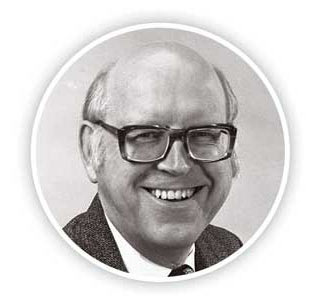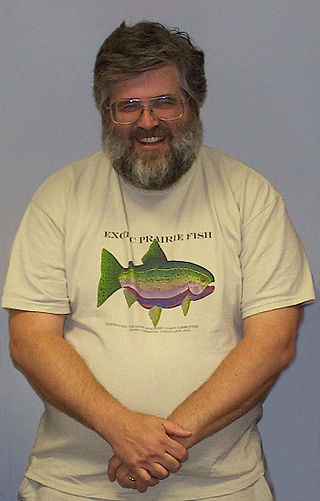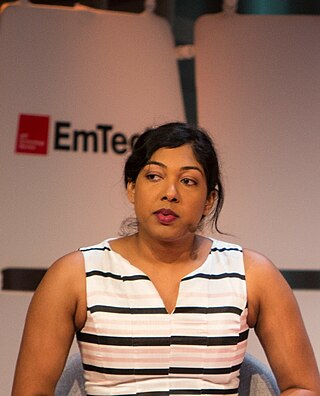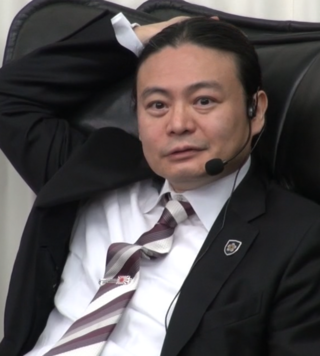Related Research Articles

Carnegie Mellon University (CMU) is a private research university in Pittsburgh, Pennsylvania, United States. The institution was established in 1900 by Andrew Carnegie as the Carnegie Technical Schools. In 1912, it became the Carnegie Institute of Technology and began granting four-year degrees. In 1967, it became Carnegie Mellon University through its merger with the Mellon Institute of Industrial Research, founded in 1913 by Andrew Mellon and Richard B. Mellon and formerly a part of the University of Pittsburgh.

The School of Computer Science (SCS) at Carnegie Mellon University in Pittsburgh, Pennsylvania, US is a school for computer science established in 1988. It has been consistently ranked among the best computer science programs over the decades. As of 2024 U.S. News & World Report ranks the graduate program as tied for No. 1 with Massachusetts Institute of Technology, Stanford University and University of California, Berkeley.

Allen Newell was an American researcher in computer science and cognitive psychology at the RAND Corporation and at Carnegie Mellon University's School of Computer Science, Tepper School of Business, and Department of Psychology. He contributed to the Information Processing Language (1956) and two of the earliest AI programs, the Logic Theorist (1956) and the General Problem Solver (1957). He was awarded the ACM's A.M. Turing Award along with Herbert A. Simon in 1975 for their contributions to artificial intelligence and the psychology of human cognition.

Dabbala Rajagopal "Raj" Reddy is an Indian-American computer scientist and a winner of the Turing Award. He is one of the early pioneers of artificial intelligence and has served on the faculty of Stanford and Carnegie Mellon for over 50 years. He was the founding director of the Robotics Institute at Carnegie Mellon University. He was instrumental in helping to create Rajiv Gandhi University of Knowledge Technologies in India, to cater to the educational needs of the low-income, gifted, rural youth. He was the founding chairman of International Institute of Information Technology, Hyderabad. He is the first person of Asian origin to receive the Turing Award, in 1994, known as the Nobel Prize of Computer Science, for his work in the field of artificial intelligence.

Edward Fredkin was an American computer scientist, physicist and businessman who was an early pioneer of digital physics.

Scott Elliott Fahlman is an American computer scientist and Professor Emeritus at Carnegie Mellon University's Language Technologies Institute and Computer Science Department. He is notable for early work on automated planning and scheduling in a blocks world, on semantic networks, on neural networks, on the programming languages Dylan, and Common Lisp, and he was one of the founders of Lucid Inc. During the period when it was standardized, he was recognized as "the leader of Common Lisp." From 2006 to 2015, Fahlman was engaged in developing a knowledge base named Scone, based in part on his thesis work on the NETL Semantic Network. He also is credited with coining the use of the emoticon.

The Human–Computer Interaction Institute (HCII) is a department within the School of Computer Science at Carnegie Mellon University (CMU) in Pittsburgh, Pennsylvania. It is considered one of the leading centers of human–computer interaction research, and was named one of the top ten most innovative schools in information technology by Computer World in 2008. For the past three decades, the institute has been the predominant publishing force at leading HCI venues, most notably ACM CHI, where it regularly contributes more than 10% of the papers. Research at the institute aims to understand and create technology that harmonizes with and improves human capabilities by integrating aspects of computer science, design, social science, and learning science.

Jaime Guillermo Carbonell was a computer scientist who made seminal contributions to the development of natural language processing tools and technologies. His extensive research in machine translation resulted in the development of several state-of-the-art language translation and artificial intelligence systems. He earned his B.S. degrees in Physics and in Mathematics from MIT in 1975 and did his Ph.D. under Dr. Roger Schank at Yale University in 1979. He joined Carnegie Mellon University as an assistant professor of computer science in 1979 and lived in Pittsburgh from then. He was affiliated with the Language Technologies Institute, Computer Science Department, Machine Learning Department, and Computational Biology Department at Carnegie Mellon.

Manuela Maria Veloso is the Head of J.P. Morgan AI Research & Herbert A. Simon University Professor Emeritus in the School of Computer Science at Carnegie Mellon University, where she was previously Head of the Machine Learning Department. She served as president of Association for the Advancement of Artificial Intelligence (AAAI) until 2014, and the co-founder and a Past President of the RoboCup Federation. She is a fellow of AAAI, Institute of Electrical and Electronics Engineers (IEEE), American Association for the Advancement of Science (AAAS), and Association for Computing Machinery (ACM). She is an international expert in artificial intelligence and robotics.
Louis-Philippe Morency is a French Canadian researcher interested in human communication and machine learning applied to a better understanding of human behavior.
Joshua Brett Tenenbaum is Professor of Computational Cognitive Science at the Massachusetts Institute of Technology. He is known for contributions to mathematical psychology and Bayesian cognitive science. According to the MacArthur Foundation, which named him a MacArthur Fellow in 2019, "Tenenbaum is one of the first to develop and apply probabilistic and statistical modeling to the study of human learning, reasoning, and perception, and to show how these models can explain a fundamental challenge of cognition: how our minds understand so much from so little, so quickly."

Christopher Granger Atkeson is an American roboticist and a professor at the Robotics Institute and Human-Computer Interaction Institute at Carnegie Mellon University (CMU). Atkeson is known for his work in humanoid robots, soft robotics, and machine learning, most notably on locally weighted learning.
Tom Michael Mitchell is an American computer scientist and the Founders University Professor at Carnegie Mellon University (CMU). He is a founder and former Chair of the Machine Learning Department at CMU. Mitchell is known for his contributions to the advancement of machine learning, artificial intelligence, and cognitive neuroscience and is the author of the textbook Machine Learning. He is a member of the United States National Academy of Engineering since 2010. He is also a Fellow of the American Academy of Arts and Sciences, the American Association for the Advancement of Science and a Fellow and past President of the Association for the Advancement of Artificial Intelligence. In October 2018, Mitchell was appointed as the Interim Dean of the School of Computer Science at Carnegie Mellon.

Ziv Bar-Joseph is an Israeli computational biologist and Professor in the Computational Biology Department and the Machine Learning Department at the Carnegie Mellon School of Computer Science.

Eric Poe Xing is an American computer scientist whose research spans machine learning, computational biology, and statistical methodology. Xing is founding President of the world’s first artificial intelligence university, Mohamed bin Zayed University of Artificial Intelligence (MBZUAI).
Frederick Joseph Gilman is an American physicist and the Buhl Professor of Theoretical Physics Emeritus at Carnegie Mellon University.

Shinjini Kundu is an Indian American physician and computer scientist at Washington University in St. Louis School of Medicine in St. Louis, Missouri. Her research focuses on designing artificial intelligence systems to detect diseases that may be imperceptible to humans. She was named one of Forbes 30 under 30, MIT Technology Review's 35 innovators under 35, a World Economic Forum Young Global Leader, and a winner of the Carnegie Science Award.

Molly Wright Steenson is an American professor of design and a historian of architecture and technology. Currently, Molly is the president and CEO of the American Swedish Institute. Previously, she was the Carnegie Mellon University Vice Provost for Faculty, K&L Gates Associate Professor of Ethics and Computational Technologies, and Senior Associate Dean for Research in the College of Fine Arts at Carnegie Mellon University.

Hideto Tomabechi is a Japanese cognitive scientist computer scientist.
Jesse Thaler is an American particle physicist who is a professor at the MIT Department of Physics. He was named director of the NSF Institute for Artificial Intelligence and Fundamental Interactions (IAIFI) upon its creation in August 2020.
References
- 1 2 "Michael Williams » MIT Physics". MIT Physics. Retrieved 2021-03-12.
- ↑ "Michael Williams". The Council of Independent Colleges. Retrieved 2021-03-12.
- ↑ "Physics Tree - Mike Williams". academictree.org. Retrieved 2021-03-12.
- ↑ "Former Graduate Students in Medium Energy Physics". www-meg.phys.cmu.edu. Retrieved 2021-03-12.
- ↑ "Meet the 2019 tenured professors in the School of Science". MIT News | Massachusetts Institute of Technology. 10 July 2019. Retrieved 2021-03-12.
- ↑ "INSPIRE". inspirehep.net. Retrieved 2021-03-12.
- ↑ "People | Michael Williams". MIT Statistics and Data Science Center. Retrieved 2021-03-12.
- ↑ "Michael Williams". IDSS. Retrieved 2021-03-12.
- ↑ Charley, Sarah (13 February 2015). "What's new for LHC Run II". symmetry magazine. Retrieved 2021-03-12.
- ↑ "Scientists Are Hunting for the 'Dark Photon'—a Portal to the Dark Universe". Gizmodo. 9 February 2018. Retrieved 2021-03-12.
- ↑ Charley, Sarah (3 September 2014). "Watching 'the clock' at the LHC". symmetry magazine. Retrieved 2021-03-12.
- ↑ Emspak, Jesse (18 February 2015). "World's Largest Atom Smasher Returns: 4 Things It Could Find". livescience.com. Retrieved 2021-03-12.
- ↑ "Hannah Diehl and Bryce Hwang named 2017-18 Goldwater Scholars". MIT News | Massachusetts Institute of Technology. 6 April 2017. Retrieved 2021-03-12.
- ↑ Gnida, Manuel (August 2018). "Machine learning proliferates in particle physics". symmetry magazine. Retrieved 2021-03-12.
- ↑ Science, Laboratory for Nuclear; MIT (2020-08-30). "NSF Announces MIT-Led Institute for Artificial Intelligence and Fundamental Interactions". SciTechDaily. Retrieved 2021-03-12.
- ↑ Overbye, Dennis (2020-11-23). "Can a Computer Devise a Theory of Everything?". The New York Times. ISSN 0362-4331 . Retrieved 2021-03-12.
- ↑ "National Science Foundation announces MIT-led Institute for Artificial Intelligence and Fundamental Interactions". MIT News | Massachusetts Institute of Technology. 26 August 2020. Retrieved 2021-03-12.
- ↑ "PhD in Physics, Statistics, and Data Science » MIT Physics". MIT Physics. Retrieved 2021-03-12.
- ↑ "Five from MIT win Early Career Awards". MIT News | Massachusetts Institute of Technology. 8 May 2013. Retrieved 2021-03-12.
- ↑ "Awards | Jefferson Lab". www.jlab.org. Retrieved 2021-03-12.
- ↑ University, Carnegie Mellon. "The Guy C. Berry Graduate Research Award - Mellon College of Science - Carnegie Mellon University". www.cmu.edu. Retrieved 2021-03-12.